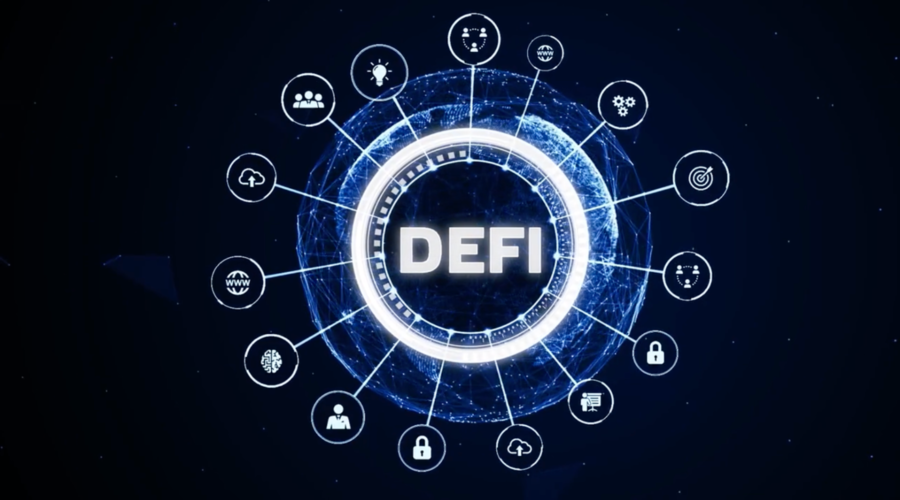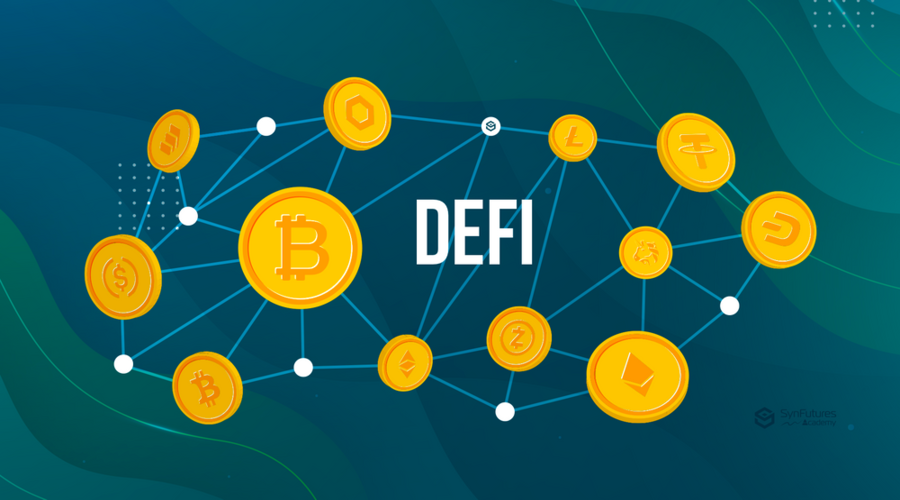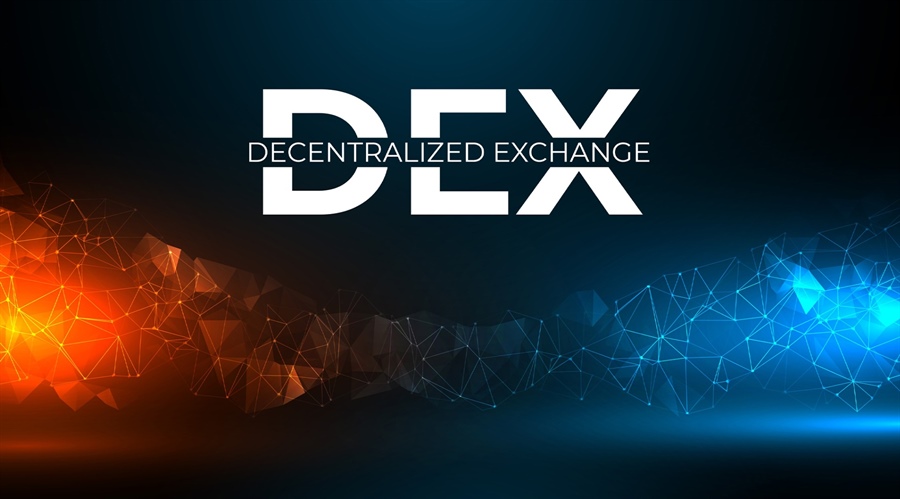As the decentralized finance (DeFi) ecosystem expands, it becomes increasingly important to educate users about security awareness and best practices. By understanding the risks associated with DeFi and adopting proper security measures, users can protect their investments and participate in DeFi with confidence. In this article, we will explore the significance of DeFi user education, common risks in DeFi, and best practices to promote security awareness.
Introduction to DeFi User Education
DeFi user education plays a crucial role in promoting security and minimizing risks. By providing users with the necessary knowledge and tools, we empower them to make informed decisions, protect their investments, and navigate the complex DeFi landscape. Educating users about the risks, best practices, and available security measures fosters a more secure and resilient DeFi ecosystem.
Understanding the Risks in DeFi
To promote security awareness, users must be familiar with the potential risks involved in DeFi. Some common risks include:
- Smart Contract Vulnerabilities
Smart contracts are the backbone of DeFi protocols, but they can have vulnerabilities. Users should be aware of the risks associated with coding errors, bugs, or even malicious intent in smart contracts. Understanding the basics of smart contract security helps users evaluate the risks associated with different protocols.
- Phishing and Scam Attempts
Phishing attempts and scams are prevalent in the DeFi space. Users should be cautious of suspicious links, emails, or messages that impersonate legitimate projects or platforms. Verifying the authenticity.
of websites, double-checking URLs, and never sharing sensitive information are crucial to avoiding falling victim to phishing or scam attempts.
- Impermanent Loss and Market Volatility
Users should understand the concept of impermanent loss, which occurs when the value of deposited assets in a liquidity pool fluctuates compared to holding them outside the pool. Additionally, market volatility can impact the value of investments. Users should be prepared for potential losses and consider risk management strategies when participating in DeFi.
Best Practices for Securing DeFi Investments
Implementing best practices is essential for securing DeFi investments. Here are some key practices to consider:
- Use Hardware Wallets or Secure Wallets
Storing digital assets in hardware wallets or secure wallets provides an extra layer of protection against hacking attempts or unauthorized access. These wallets keep private keys offline, reducing the risk of online attacks.
- Enable Two-Factor Authentication (2FA)
Enabling 2FA adds an additional security layer by requiring a second form of verification for account access. Users should utilize 2FA wherever possible, including exchanges, wallets, and other DeFi platforms.
- Be Cautious of Suspicious Links and Phishing Attempts
Users should be vigilant about clicking on suspicious links or providing sensitive information to unknown sources. Verify the legitimacy of websites and platforms, and never share private keys, passwords, or seed phrases online.
- Conduct Thorough Research on Projects and Protocols
Before investing in a project or protocol, users should conduct comprehensive research. Evaluate the project’s team, community engagement, security audits, and roadmap. Scrutinize whitepapers and project documentation to gain a better understanding of the technology and underlying risks.
- Diversify Investments and Manage Risk
Diversification is key to managing risk in DeFi. By allocating investments across multiple projects or protocols, users can mitigate the impact of potential losses. Additionally, setting investment limits and being mindful of personal risk tolerance are crucial for maintaining a balanced portfolio.
- Protecting Personal Information
Protecting personal information is paramount in the DeFi space. Here are some practices to consider:
- Seek Community Feedback and Reviews
Engage with the community to gather insights and feedback on projects. Participate in forums, social media discussions, and online communities dedicated to DeFi. Learning from the experiences of others can help identify potential scams and make informed investment decisions.
Navigating DeFi Platforms and Exchanges
When using DeFi platforms and exchanges, users should consider the following:
Understand the Platform’s Security Measures
Before using a DeFi platform or exchange, evaluate their security measures. Look for platforms that employ robust security protocols, such as cold storage for funds, regular security audits, and bug bounty programs. Transparent security practices demonstrate a commitment to user protection.
Utilize Decentralized Exchanges (DEX) When Possible
Decentralized exchanges (DEX) offer increased security compared to centralized exchanges. DEX platforms allow users to retain control over their funds, reducing the risk of hacks or theft. Utilize reputable DEX platforms and be cautious of fake or phishing DEX websites.
Be Aware of Withdrawal Limits and Fees
Familiarize yourself with withdrawal limits and associated fees on exchanges or DeFi platforms. Understanding the terms and conditions regarding withdrawals helps manage expectations and avoids unexpected limitations or costs.
Regularly Monitor and Review Transactions
Stay vigilant and regularly review your transaction history. Verify the accuracy of transactions and identify any suspicious activities promptly. Prompt action can help mitigate potential losses in case of unauthorized transactions or security breaches.
Staying Informed and Engaged

To stay informed and enhance security awareness, users should:
Follow Reliable News Sources and Community Channels
Stay updated on the latest developments, security news, and trends in DeFi by following reputable news sources, blogs, and official project announcements. Join official community channels, such as Discord or Telegram groups, to receive real-time updates and engage with other users.
Participate in Forums and Discussions
Engaging in discussions with other community members, developers, and experts provides valuable insights and knowledge sharing. Participate in DeFi-focused forums, social media groups, and online communities to learn from others and stay informed.
Stay Updated on Regulatory Developments
Regulatory changes can impact the DeFi landscape. Stay informed about regulatory developments and compliance requirements in your jurisdiction. By understanding the legal landscape, you can align your activities with applicable regulations and avoid potential pitfalls.
Engage with Security Audits and Bug Bounty Programs
Support projects that prioritize security by engaging with security audits and bug bounty programs. Encourage transparency and accountability within the DeFi ecosystem by reporting vulnerabilities responsibly and participating in bug bounty programs when available.
Educating Newcomers to DeFi
Education is crucial, especially for newcomers to the DeFi space. By providing educational resources and promoting responsible practices, we can help newcomers navigate the DeFi landscape with confidence. Consider the following:
Provide Educational Resources and Guides
Develop and share educational resources that explain DeFi concepts, terminology, and security best practices. Provide guides on wallet setup, transaction procedures, and risk management strategies. These resources empower newcomers to make informed decisions.
Explain Common Terms and Concepts
Demystify complex DeFi concepts and terminology by providing clear explanations and examples. Help newcomers understand concepts such as liquidity pools, yield farming, impermanent loss, or decentralized governance.
Encourage Responsible Investment Strategies
Promote responsible investment strategies, including diversification, risk management, and cautious decision-making. Emphasize the importance of conducting research, assessing risk-reward profiles, and not investing more than one can afford to lose.
Emphasize the Importance of Ongoing Learning
DeFi is a dynamic and evolving space. Encourage
users to embrace a mindset of continuous learning. Emphasize the importance of staying updated on new protocols, security practices, and regulatory developments. Encourage users to seek out new educational opportunities, attend webinars or conferences, and engage in online courses to expand their knowledge.
DeFi Regulations and Compliance
As the DeFi ecosystem continues to grow, regulatory scrutiny and compliance requirements are becoming increasingly important. It is crucial for users and projects to understand and comply with applicable regulations to ensure the long-term sustainability and legitimacy of DeFi.
Regulatory Landscape for DeFi
DeFi operates in a rapidly evolving regulatory landscape, with different jurisdictions applying varying degrees of oversight. Users should familiarize themselves with the regulatory framework governing DeFi activities in their jurisdiction. Stay updated on any changes or proposed regulations that could impact DeFi operations, including licensing requirements, reporting obligations, or restrictions on certain activities.
KYC/AML Requirements and Privacy Considerations
Know Your Customer (KYC) and Anti-Money Laundering (AML) requirements are becoming more common in DeFi platforms, especially those that bridge traditional finance and decentralized systems. Users may be required to provide personal information and undergo identity verification processes. While KYC/AML procedures aim to prevent illicit activities, users should carefully consider the risks and potential privacy implications of sharing their personal data.
Compliance with Local Laws and Regulations
Adherence to local laws and regulations is crucial for maintaining compliance and avoiding legal issues. DeFi participants must understand the legal implications of their activities, including tax obligations, securities regulations, and data protection requirements. Seek legal advice if necessary to ensure compliance with local laws and regulations in your jurisdiction.
Promoting DeFi Security Through Decentralization and Audits
Decentralization and independent security audits are fundamental pillars for promoting security in DeFi.
Decentralization for Enhanced Security
DeFi’s decentralized nature enhances security by reducing reliance on single points of failure and central authorities. Decentralized protocols distribute control and decision-making power among participants, making it harder for malicious actors to compromise the entire system. Users should prioritize engaging with decentralized platforms and protocols that prioritize transparency, community governance, and open-source development.
Security Audits and Penetration Testing
Security audits play a vital role in identifying vulnerabilities and ensuring the integrity of DeFi projects. Independent security auditors review smart contracts, codebases, and infrastructure to identify potential weaknesses or vulnerabilities. Engaging reputable security audit firms helps identify and rectify security issues before they are exploited. Projects that undergo regular audits demonstrate their commitment to security and provide users with increased confidence in their offerings.
Insurance and Risk Mitigation Strategies
Insurance and risk mitigation strategies can provide additional layers of protection for DeFi participants.
DeFi Insurance
DeFi insurance protocols and platforms are emerging to mitigate the risks associated with smart contract vulnerabilities, hacks, or protocol failures. Users can purchase insurance coverage to protect their funds in case of unforeseen events. However, it’s important to carefully evaluate insurance options, understand coverage limitations, and assess the credibility and transparency of insurance providers.
Risk Management and Diversification
Effective risk management is crucial in DeFi. Users should diversify their investments across different protocols and projects to mitigate the impact of potential losses. Setting clear risk tolerance levels, regularly reassessing investments, and staying updated on market trends and dynamics can help manage risk effectively.
Continuous Innovation and Security Upgrades
DeFi’s dynamic nature requires continuous innovation and proactive security upgrades.
Smart Contract Audits and Upgrades
Smart contracts should undergo regular audits and upgrades to address potential vulnerabilities or bugs. Developers should prioritize security best practices, code reviews, and thorough testing to ensure the integrity of their smart contracts. Continuous monitoring and prompt response to security incidents are essential to maintaining the security of DeFi applications.
Bug Bounty Programs
Bug bounty programs incentivize security researchers to identify and report vulnerabilities in DeFi projects. Projects offering bug bounties create a collaborative environment where researchers can responsibly disclose vulnerabilities, receive rewards, and contribute to the overall security of the ecosystem. Engaging with bug bounty
programs helps identify and address potential security risks, enhancing the overall security posture of DeFi projects.
DeFi Security Education and Awareness
Education and awareness play a vital role in promoting DeFi security.
User Education and Resources
Providing comprehensive educational resources, tutorials, and guides helps users understand the fundamentals of DeFi security. Educate users on topics such as wallet security, transaction verification, secure browsing practices, and identifying phishing attempts. Empower users to make informed decisions and adopt best security practices.
Security Alerts and Notifications
Projects and platforms should implement robust security alert systems to notify users of potential risks, vulnerabilities, or security breaches. Promptly informing users of security incidents enables them to take appropriate actions to protect their assets.
Community Collaboration and Peer Learning
Encouraging community collaboration and peer learning fosters a culture of shared responsibility for security. Establish forums, social media groups, or online communities where users can discuss security practices, share experiences, and collectively identify potential risks or vulnerabilities. Engage with the community to address security concerns and implement feedback-driven security enhancements.
Conclusion
DeFi user education plays a vital role in promoting security awareness and best practices. By understanding the risks, adopting proper security measures, and staying informed, users can protect their investments and actively participate in the DeFi ecosystem. Implementing hardware wallets, enabling 2FA, avoiding suspicious links, conducting thorough research, and safeguarding personal information are essential steps towards secure DeFi participation. Emphasize the importance of responsible investment strategies, staying updated on security news, and engaging with the community to foster a safer and more resilient DeFi ecosystem.




